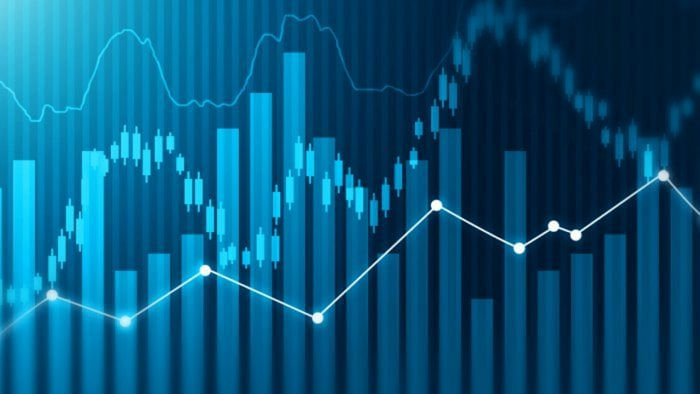
Markets fluctuated in Asia on Tuesday as traders nervously geared up for a slew of earnings from the world's biggest firms and an expected Federal Reserve interest rate hike.
A shock cut in US retail titan Walmart's profit outlook poured fuel on concerns that surging inflation and rising borrowing costs are hammering consumer spending and could send the economy into recession.
The news left markets concerned about what's to come from other Wall Street giants this week - including Apple, Amazon, McDonald's and General Motors.
Adding to the unease on trading floors was news that Russia's Gazprom will cut back gas deliveries to Germany, citing a faulty turbine, less than a week after restarting flows following 10 days of maintenance work.
After a mixed performance in New York, Asia struggled to gain traction.
But Hong Kong was given a much-needed lift by news that market heavyweight Alibaba will seek a primary listing in the city, allowing it to be traded by mainland Chinese investors.
The move from a secondary listing would come as several Chinese firms listed in the United States grow increasingly worried about a regulatory crackdown by authorities as part of a stand-off in the tech sector between Washington and Beijing.
It also further indicated the firm is more confident that a long-running period of clampdowns by China on the industry is coming to an end.
A three per cent jump in Alibaba helped the Hang Seng Index higher, while there were also gains in Shanghai, Sydney, Seoul, Singapore, Manila and Jakarta.
Tokyo, Taipei and Wellington dropped.
Analysts were cautioued about the outlook for world markets, despite a positive run-up in July.
"This is most likely a bear market rally and there are significant risks still facing this market," Katerina Simonetti, at Morgan Stanley Private Wealth Management, told Bloomberg Television.
"We're probably going to be seeing a lot of choppiness and potentially some further declines in the market before the year end."
For now there will be little respite for investors from the Fed as it continues to ramp up borrowing costs, with another 75 basis point lift expected this week, and more before the end of the year.
Several officials at the bank including boss Jerome Powell have suggested they were determined to bring inflation down from four-decade highs, even at the expense of economic growth.
Still, market strategist Louis Navellier said they could start to loosen monetary policy in the new year when the economy shows strains.
"Uncertainty is high as to the Fed's willingness to keep tightening if the economy slows significantly, with many forecasts projecting that the Fed will reverse and start cutting rates by the summer of 2023 as the economy slows and inflation wanes," he said in a note.